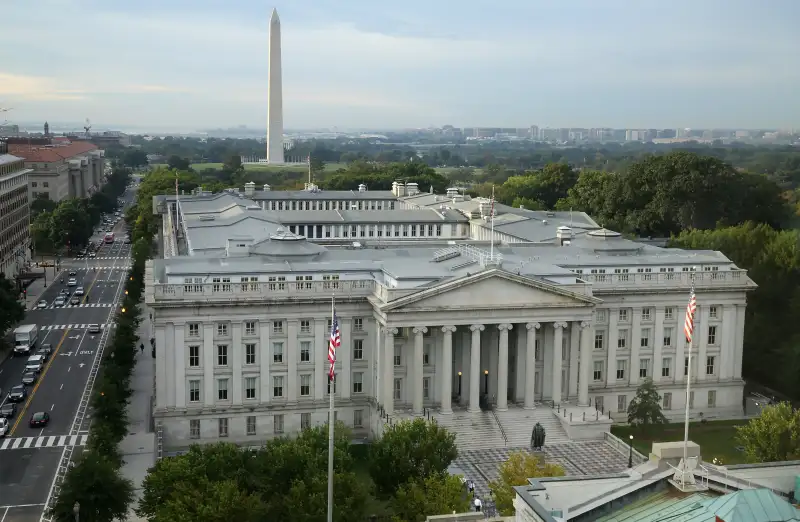The Federal Deficit Just Hit a 7-Year Low
Money is not a client of any investment adviser featured on this page. The information provided on this page is for educational purposes only and is not intended as investment advice. Money does not offer advisory services.

The U.S. budget deficit narrowed to $439 billion in fiscal 2015, the lowest level since 2008, as the economy continued to recover from the financial crisis and revenue growth outpaced a rise in spending, the Treasury Department said on Thursday.
The 2015 deficit fell to 2.5% of gross domestic product, the lowest since 2007 and less than the average of the last 40 years. Last year's deficit was $483 billion, with a deficit-to-GDP ratio of 2.8%. Accounting for calendar adjustments, the 2015 fiscal year deficit was $445 billion.
Fiscal 2015 revenues grew 8% to $3.249 trillion, while outlays rose 5% to $3.688 trillion.
The shrinking deficit is a marked change from the $1 trillion-plus annual deficits the U.S. government reported from fiscal 2009-2012 when it ramped up spending to deal with the effects of the financial crisis.
Congressional leaders and the White House have been holding closed-door talks on reaching a two-year budget deal. They face a Dec 11. deadline, when current funding for federal agencies expire.
Republicans want the budget negotiations to eliminate strict budget caps on defense programs, while Democrats want to kill the caps for defense and other domestic programs.
Congress also faces an impending debt ceiling deadline. The Treasury said earlier on Thursday that the U.S. government will exhaust its borrowing capacity no later than Nov. 3, two days earlier than its previous estimate.
Raising the debt limit is a controversial issue for conservative Republicans. They want to extract deep reductions in domestic spending over the long term before allowing an increase in government borrowing.
For September, the Treasury recorded a budget surplus of $91 billion, down from a $106 billion surplus a year ago. Analysts polled by Reuters had forecast a $95 billion surplus for last month.
Receipts in September totaled $365 billion, up 4% from the same month in 2014, while outlays were up 12% to $274 billion.
A Treasury official, who spoke on condition of anonymity, told reporters that receipts last month were dampened by a difference in the composition of business days.
The non-partisan Congressional Budget Office has forecast a $414 billion deficit for fiscal 2016, and continues to warn that increasing federal debt levels are unsustainable over the long term.
--With additional reporting by Rick Cowan and Megan Cassella
Read Next: The Cost-of-Living Adjustment Needs an Adjustment